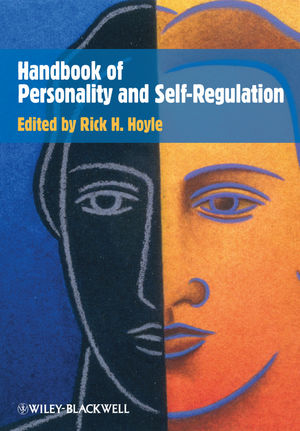Handbook of Personality and Self-RegulationISBN: 978-1-4051-7712-2
Hardcover
542 pages
February 2010, Wiley-Blackwell
 This is a Print-on-Demand title. It will be printed specifically to fill your order. Please allow an additional 10-15 days delivery time. The book is not returnable.
|
||||||
"This handbook serves as a significant tool for those seeking to understand the complexities of self-regulation. Hoyle (Duke Univ.) has brought together an impressive contingent of authors and developed a work that balances theoretical foundations and practical applications. The contributors do a masterful job of integrating what have often seemed disparate findings in the self-regulation literature...Those working with individuals who have self-regulatory issues are likely to find this volume particularly useful. Summing Up: Highly recommended." (Choice, 1 May 2011)
"Rick H. Hoyle has used the study of self-regulation to draw
together exciting findings from the usually disparate areas of
information processing, temperament/personality, developmental and
social psychology. Psychologists from these areas will add breadth
and integration to their models of self-regulation, and clinical
psychologists will greatly benefit from reading this book."
—Mary K. Rothbart, Distinguished Professor of Psychology Emerita, University of Oregon
—Mary K. Rothbart, Distinguished Professor of Psychology Emerita, University of Oregon
"Failure to self-regulate is associated with personal and
societal costs (e.g., obesity, alcohol consumption, excessive
lending or borrowing, and high-risk investments). Zeal in
self-regulating can also be maladaptive, as it is associated with
inhibition of emotional expression and authentic behavior. Twenty
one chapters from front-line experts offer thoughtful analyses of
temperamental and personality substrates of self-regulation along
with their interplay with social behavior. This book promises to be
an indispensable resource for researchers and practitioners, as
well as both graduate and advanced undergraduate students."
—Constantine Sedikides, University of Southampton



